– whereas the often scolded cholesterol is good for you
 Cardiovascular diseases account for more deaths than anything else. Still, there is a lot of discussion about the diet and its impact on cardiovascular health, typically when it comes to the question of avoiding fat and choosing margarine instead of butter. A team of Czech scientists decided to study diet habits among different populations and compare these with the risk of cardiovascular disease and premature death. Their study shows that there is no need to be afraid of cholesterol. In fact, the official dietary guidelines could easily do with an adjustment. At the same time, it is important to reduce our intake of carbohydrates and omega-6 fatty acids that are the real culprits. Finally, it is essential to increase the intake of omega-3.
Cardiovascular diseases account for more deaths than anything else. Still, there is a lot of discussion about the diet and its impact on cardiovascular health, typically when it comes to the question of avoiding fat and choosing margarine instead of butter. A team of Czech scientists decided to study diet habits among different populations and compare these with the risk of cardiovascular disease and premature death. Their study shows that there is no need to be afraid of cholesterol. In fact, the official dietary guidelines could easily do with an adjustment. At the same time, it is important to reduce our intake of carbohydrates and omega-6 fatty acids that are the real culprits. Finally, it is essential to increase the intake of omega-3.
- because of the many antioxidants
 A new Chinese study that is published in the science journal, Heart, shows that eating an egg every day can lower your risk of stroke by 26 percent. The reason is that eggs contain selenium and other powerful antioxidants that protect against atherosclerosis, and we do not get all that much selenium from our diets. Therefore, forget all about the cholesterol scare and warnings against eating eggs. That dietary advice is outdated and has done more harm than good.
A new Chinese study that is published in the science journal, Heart, shows that eating an egg every day can lower your risk of stroke by 26 percent. The reason is that eggs contain selenium and other powerful antioxidants that protect against atherosclerosis, and we do not get all that much selenium from our diets. Therefore, forget all about the cholesterol scare and warnings against eating eggs. That dietary advice is outdated and has done more harm than good.
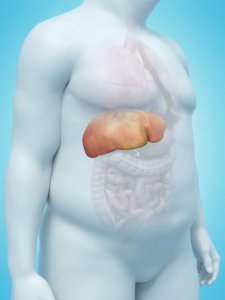 It has been known for a long time that a lack of vitamin D increases your risk of overweight. Now, an Italian study gives a whole new view on low vitamin D and how it is linked to elevated levels of TMAO (Trimethylamine N-oxide), a metabolite that increases the risk of non-alcoholic fatty liver and accompanying complications such as insulin resistance, diabetes, and cardiovascular disease. The scientists also looked at the gut flora’s and the liver’s roles in TMAO production and the fact that low vitamin D levels and overweight are a vicious cycle. It appears that overweight people need more vitamin D than the recommended level. In terms of non-alcoholic fatty liver, we will also be looking at the controversial delicacy, foie gras, and the fact that carbohydrate overconsumption burdens your liver.
It has been known for a long time that a lack of vitamin D increases your risk of overweight. Now, an Italian study gives a whole new view on low vitamin D and how it is linked to elevated levels of TMAO (Trimethylamine N-oxide), a metabolite that increases the risk of non-alcoholic fatty liver and accompanying complications such as insulin resistance, diabetes, and cardiovascular disease. The scientists also looked at the gut flora’s and the liver’s roles in TMAO production and the fact that low vitamin D levels and overweight are a vicious cycle. It appears that overweight people need more vitamin D than the recommended level. In terms of non-alcoholic fatty liver, we will also be looking at the controversial delicacy, foie gras, and the fact that carbohydrate overconsumption burdens your liver.
- increasing your risk of pancreatitis and other complications
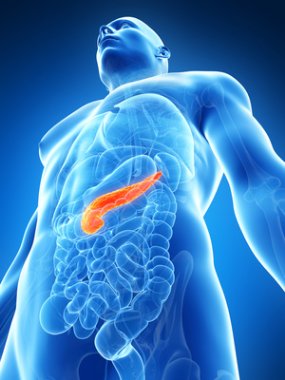 A new American study shows that chronic alcohol abuse impairs the ability of the pancreas to absorb vitamin C, and that increases the risk of infection of the pancreas (pancreatitis) and other diseases. Lack of certain B vitamins may also damage the pancreas and increase the risk of encephalitis.
A new American study shows that chronic alcohol abuse impairs the ability of the pancreas to absorb vitamin C, and that increases the risk of infection of the pancreas (pancreatitis) and other diseases. Lack of certain B vitamins may also damage the pancreas and increase the risk of encephalitis.
 It is widely established that women of childbearing age have high levels of estrogen that protect them against cardiovascular disease. However, if they have type 1 diabetes, having high estrogen levels actually increases their risk of these diseases. A group of scientists is therefore planning to investigate whether nutritional supplements with antioxidants can protect diabetics against cardiovascular disease and the premature death caused by these ailments.
It is widely established that women of childbearing age have high levels of estrogen that protect them against cardiovascular disease. However, if they have type 1 diabetes, having high estrogen levels actually increases their risk of these diseases. A group of scientists is therefore planning to investigate whether nutritional supplements with antioxidants can protect diabetics against cardiovascular disease and the premature death caused by these ailments.
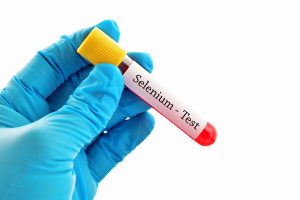 It is estimated that one billion people worldwide lack selenium. This has fatal consequences for public health because it increases the risk of virus infections, thyroid disorders, cardiovascular diseases, cancer, neurological disorders, and involuntary infertility. Adding to that problem is the fact that mercury, a known environmental toxin, throws a wrench into selenium’s different functions. In the following, we have compiled a long list of studies that look closer at the consequences of selenium deficiency and the advantage of optimizing the body’s selenium status with help from supplements.
It is estimated that one billion people worldwide lack selenium. This has fatal consequences for public health because it increases the risk of virus infections, thyroid disorders, cardiovascular diseases, cancer, neurological disorders, and involuntary infertility. Adding to that problem is the fact that mercury, a known environmental toxin, throws a wrench into selenium’s different functions. In the following, we have compiled a long list of studies that look closer at the consequences of selenium deficiency and the advantage of optimizing the body’s selenium status with help from supplements.
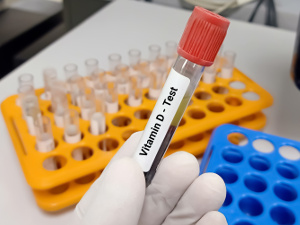 Blood levels of vitamin D serve as an early indicator of future health problems such as cardiovascular disease, osteoporosis, and cancer, according to a review article that was presented recently to the European Society of Endocrinology. Lack of vitamin D is rather common and a threat to public health, which is why the scientists suggest measuring levels of total vitamin D and free vitamin D in the blood. By optimizing levels of the nutrient in the blood it is possible to prevent a host of different lifestyle diseases as well as early death. It is not enough just to take any random vitamin D supplement. It must contain the right dose and have good absorption in order to be able to optimize vitamin D levels in the blood.
Blood levels of vitamin D serve as an early indicator of future health problems such as cardiovascular disease, osteoporosis, and cancer, according to a review article that was presented recently to the European Society of Endocrinology. Lack of vitamin D is rather common and a threat to public health, which is why the scientists suggest measuring levels of total vitamin D and free vitamin D in the blood. By optimizing levels of the nutrient in the blood it is possible to prevent a host of different lifestyle diseases as well as early death. It is not enough just to take any random vitamin D supplement. It must contain the right dose and have good absorption in order to be able to optimize vitamin D levels in the blood.
 Chromium is primarily known for its role in insulin utilization and blood sugar control. However, chromium is also important for macronutrient metabolism and the circulatory system. Chromium’s role in health has been debated and a group of scientists have looked closer at the link between low blood levels of chromium and global health burdens such as cardiovascular disease, type 2 diabetes, and depression. How do we get enough chromium from the diet and what supplements have the highest bioavailability?
Chromium is primarily known for its role in insulin utilization and blood sugar control. However, chromium is also important for macronutrient metabolism and the circulatory system. Chromium’s role in health has been debated and a group of scientists have looked closer at the link between low blood levels of chromium and global health burdens such as cardiovascular disease, type 2 diabetes, and depression. How do we get enough chromium from the diet and what supplements have the highest bioavailability?
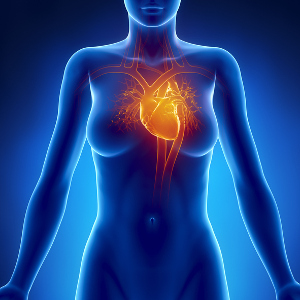 There is a clear link between magnesium intake and the risk of heart diseases and sudden cardiac death in postmenopausal women, according to a study that is published in Journal of Women’s Health. Unfortunately, many women are not diagnosed with heart disease at a sufficiently early stage. It is also a fact that many postmenopausal women take calcium supplements for bone health. However, if they also lack magnesium, which is responsible for the calcium distribution in the body, the calcium supplements may instead increase the risk of coronary atherosclerosis. According to new and earlier research, we must focus a lot more on telling women how important it is to get enough magnesium at all stages of life – not least after menopause.
There is a clear link between magnesium intake and the risk of heart diseases and sudden cardiac death in postmenopausal women, according to a study that is published in Journal of Women’s Health. Unfortunately, many women are not diagnosed with heart disease at a sufficiently early stage. It is also a fact that many postmenopausal women take calcium supplements for bone health. However, if they also lack magnesium, which is responsible for the calcium distribution in the body, the calcium supplements may instead increase the risk of coronary atherosclerosis. According to new and earlier research, we must focus a lot more on telling women how important it is to get enough magnesium at all stages of life – not least after menopause.
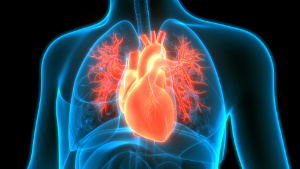 Seniors have an increased risk of cardiovascular disease, which is the leading cause of death. It is commonly known that diet plays a key role in preventing these diseases, and a team of scientists therefore decided to look closer at zincbecause of this nutrient’s many functions in the heart and cardiovascular system. The scientists found that older people often lack zinc for different reasons. Therefore, the dietary guidelines for zinc in old age should be reconsidered with regard to cardiovascular health and other zinc-dependent functions.
Seniors have an increased risk of cardiovascular disease, which is the leading cause of death. It is commonly known that diet plays a key role in preventing these diseases, and a team of scientists therefore decided to look closer at zincbecause of this nutrient’s many functions in the heart and cardiovascular system. The scientists found that older people often lack zinc for different reasons. Therefore, the dietary guidelines for zinc in old age should be reconsidered with regard to cardiovascular health and other zinc-dependent functions.
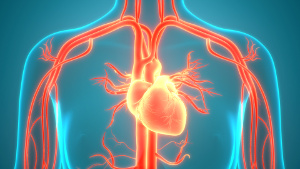 Life cannot exist without coenzyme Q10. The compound is necessary for the energy turnover in all our cells. It also functions as a powerful antioxidant that protects the heart and cardiovascular system against oxidative stress. Humans are able to synthesize Q10 but our endogenous production decreases with age. Heart failure patients also have reduced levels of Q10 which can be fatal, but decades of research have shown that Q10 supplements can improve quality of life and reduce mortality by close to 50 percent, according to a review article in Journal of Clinical Medicine. Here, the authors refer to 90 published articles. It is also important to get enough selenium, which helps Q10 function optimally.
Life cannot exist without coenzyme Q10. The compound is necessary for the energy turnover in all our cells. It also functions as a powerful antioxidant that protects the heart and cardiovascular system against oxidative stress. Humans are able to synthesize Q10 but our endogenous production decreases with age. Heart failure patients also have reduced levels of Q10 which can be fatal, but decades of research have shown that Q10 supplements can improve quality of life and reduce mortality by close to 50 percent, according to a review article in Journal of Clinical Medicine. Here, the authors refer to 90 published articles. It is also important to get enough selenium, which helps Q10 function optimally.
Dietary fibres are coarse, indigestible carbohydrates. They are constituents of cell walls in plants and differ from starch and sugar by their inability to be broken down by the digestive enzymes in the gastro-intestinal tract. For that reason, dietary fibre hardly provides any energy on its way through the digestive system. On its passage through the system, fibre affects the intestinal contents and its transit time, which benefits the digestion and also provides secondary health benefits.
Dietary fibre is divided in two groups: Soluble and insoluble fibre types.
 Apparently so, according to a study that reveals how supplements of vitamin C reduce vasoconstriction in overweight individuals who, because of an increased tendency to this problem, have an elevated risk of cardiovascular ailments.
Apparently so, according to a study that reveals how supplements of vitamin C reduce vasoconstriction in overweight individuals who, because of an increased tendency to this problem, have an elevated risk of cardiovascular ailments.
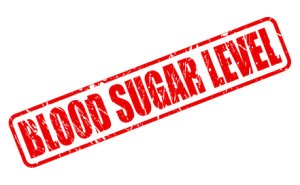 A British study has shown that elevated blood sugar levels cause blood vessels to constrict. This strains the heart, raises blood pressure, and reduces the blood supply to other organs. It is therefore sugar and not saturated fat that is the cause of cardiovascular disease. We should be far more focused on how to control our blood sugar levels. Proper diet means a lot, and so does adequate intake of a particular essential trace element that appears to have a special role.
A British study has shown that elevated blood sugar levels cause blood vessels to constrict. This strains the heart, raises blood pressure, and reduces the blood supply to other organs. It is therefore sugar and not saturated fat that is the cause of cardiovascular disease. We should be far more focused on how to control our blood sugar levels. Proper diet means a lot, and so does adequate intake of a particular essential trace element that appears to have a special role.
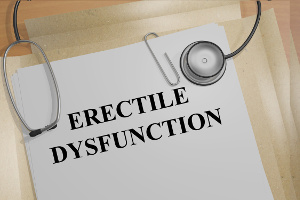 Many men suffer from erectile dysfunction, a problem that often foreshadows cardiovascular disorders. It appears that vitamin D plays a preventive role by way of several mechanisms that can even benefit diabetics, according to a new meta-analysis published in Clinical Nutrition. An earlier study that is published in Clinical Endocrinology shows that vitamin D is involved in the production of male testosterone, which is essential for the ability to obtain and maintain an erection. A man’s sexual performance is therefore highly dependent on his vitamin D levels throughout life.
Many men suffer from erectile dysfunction, a problem that often foreshadows cardiovascular disorders. It appears that vitamin D plays a preventive role by way of several mechanisms that can even benefit diabetics, according to a new meta-analysis published in Clinical Nutrition. An earlier study that is published in Clinical Endocrinology shows that vitamin D is involved in the production of male testosterone, which is essential for the ability to obtain and maintain an erection. A man’s sexual performance is therefore highly dependent on his vitamin D levels throughout life.
 The number of seniors in the world is growing steadily which means a surge in problems like cardiovascular disease, cancer, respiratory illnesses, overweight, diabetes, rheumatism, dementia, and Alzheimer’s disease. These diseases that have a widespread impact on human lives and are a burden to society are often linked to chronic inflammation. A group of scientists therefore decided to look closer at studies that have found a positive effect of the omega-3 fatty acids EPA and DHA on cognitive functioning, maintenance of muscle mass, and prevention and treatment of a host of serious diseases that are related to ageing. It is vital to start supplementing early and to take the right doses, according to the new review article published in Nutrients.
The number of seniors in the world is growing steadily which means a surge in problems like cardiovascular disease, cancer, respiratory illnesses, overweight, diabetes, rheumatism, dementia, and Alzheimer’s disease. These diseases that have a widespread impact on human lives and are a burden to society are often linked to chronic inflammation. A group of scientists therefore decided to look closer at studies that have found a positive effect of the omega-3 fatty acids EPA and DHA on cognitive functioning, maintenance of muscle mass, and prevention and treatment of a host of serious diseases that are related to ageing. It is vital to start supplementing early and to take the right doses, according to the new review article published in Nutrients.
– and the amount you consume matters
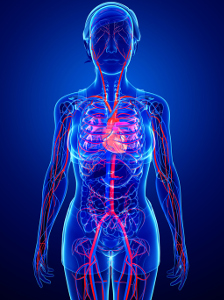 Fish oil contains the long-chained omega-3fatty acids, EPA and DHA, that have a number of essential functions. Although it has been known for decades that fish oil lowers the risk of cardiovascular disease and early death, study results have been conflicting. Now, a large British population study of over 400,000 people confirms that regular consumption of fish oil supplements has a positive effect on the cardiovascular system and contributes to improved quality of longevity. The scientists also address that the quantity of fish oil may be determining for your health.
Fish oil contains the long-chained omega-3fatty acids, EPA and DHA, that have a number of essential functions. Although it has been known for decades that fish oil lowers the risk of cardiovascular disease and early death, study results have been conflicting. Now, a large British population study of over 400,000 people confirms that regular consumption of fish oil supplements has a positive effect on the cardiovascular system and contributes to improved quality of longevity. The scientists also address that the quantity of fish oil may be determining for your health.
 Heart failure is a disease with a variety of different symptoms and a high mortality rate because the heart’s pumping function is impaired. Heart failure is also characterized by chronic inflammation that worsens the prognosis. Apparently, fish oil supplementation can reduce chronic inflammation, according to a meta-analysis that is published in Heart Failure Reviews. In fact, eating more omega-3 fatty acids from fish and different plant sources can improve survival in heart failure.
Heart failure is a disease with a variety of different symptoms and a high mortality rate because the heart’s pumping function is impaired. Heart failure is also characterized by chronic inflammation that worsens the prognosis. Apparently, fish oil supplementation can reduce chronic inflammation, according to a meta-analysis that is published in Heart Failure Reviews. In fact, eating more omega-3 fatty acids from fish and different plant sources can improve survival in heart failure.
 On a global scale, cardiovascular disease and coronary occlusion cause more deaths than any other factor. However, according to a large meta-analysis from Harvard T. H. Chan School of Public Health and Brigham and Women’s Hospital in Boston, USA, people who take fish oil have a lower risk of atherosclerosis and cardiac failure than those, who do not take the supplements. The study also revealed that high-dosed fish oil supplementation delivers more health benefits than the lower doses. Atherosclerosis develops gradually, and millions of people die every year because of this problem, which means that even minor changes such as taking supplements and eating a healthier diet, can improve quality of life and prevent many deaths. So, according to the new study, how much fish oil is needed in order to obtain the optimal cardiovascular effect?
On a global scale, cardiovascular disease and coronary occlusion cause more deaths than any other factor. However, according to a large meta-analysis from Harvard T. H. Chan School of Public Health and Brigham and Women’s Hospital in Boston, USA, people who take fish oil have a lower risk of atherosclerosis and cardiac failure than those, who do not take the supplements. The study also revealed that high-dosed fish oil supplementation delivers more health benefits than the lower doses. Atherosclerosis develops gradually, and millions of people die every year because of this problem, which means that even minor changes such as taking supplements and eating a healthier diet, can improve quality of life and prevent many deaths. So, according to the new study, how much fish oil is needed in order to obtain the optimal cardiovascular effect?
 Surprisingly many people suffer from hypertension without knowing it. That is a concealed threat, as elevated blood pressure is a common cause of stroke and premature death. However, people with hypertension who take folic acid along with their blood pressure-lowering medicine have a substantially lower risk of stroke.
Surprisingly many people suffer from hypertension without knowing it. That is a concealed threat, as elevated blood pressure is a common cause of stroke and premature death. However, people with hypertension who take folic acid along with their blood pressure-lowering medicine have a substantially lower risk of stroke.
 Heart failure affects millions of people worldwide and many die within the first year of being hospitalized with acute heart failure. However, eating a diet that is rich in the omega-3 fatty acid EPA from oily fish and ALA from plant foods such as walnuts is linked to a lower risk of blood clots and early death, according to a new study that is published in Journal of the American College of Cardiology. You can also read more about another compound that improves cardiac function and survival after acute heart failure.
Heart failure affects millions of people worldwide and many die within the first year of being hospitalized with acute heart failure. However, eating a diet that is rich in the omega-3 fatty acid EPA from oily fish and ALA from plant foods such as walnuts is linked to a lower risk of blood clots and early death, according to a new study that is published in Journal of the American College of Cardiology. You can also read more about another compound that improves cardiac function and survival after acute heart failure.
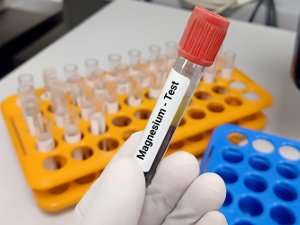 Chronic heart failure is a clinical syndrome that involves, among other things, reduced heart pumping function. The condition is often life-threatening. A new study that is published in Journal of the American Heart Association looks closer at how supplementation with magnesium can help the heart muscle contract with greater force and perhaps be a useful adjuvant in the treatment of heart failure. The study supports another study that is published in Diabetes Care. In this study, it is demonstrated that lack of magnesium is linked to heart failure, atrial fibrillation, and other complications from type 2 diabetes.
Chronic heart failure is a clinical syndrome that involves, among other things, reduced heart pumping function. The condition is often life-threatening. A new study that is published in Journal of the American Heart Association looks closer at how supplementation with magnesium can help the heart muscle contract with greater force and perhaps be a useful adjuvant in the treatment of heart failure. The study supports another study that is published in Diabetes Care. In this study, it is demonstrated that lack of magnesium is linked to heart failure, atrial fibrillation, and other complications from type 2 diabetes.
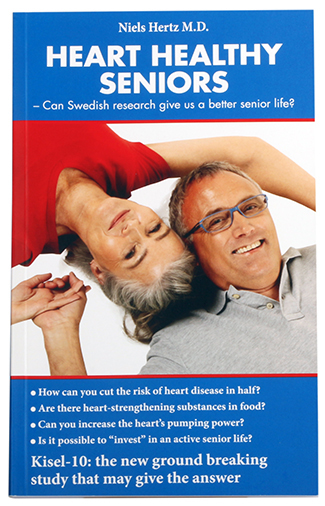
Read how you can reduce your risk of dying from cardiovascular disease.
The book describes how a new treatment that was tested by 443seniors improved their heart health and reduced the incidence
of cardiac death by 54%. All they did wastake two natural and vitalsubstances which elderly often lack in their diet. No drugs or
surgery were used and no side effects were seen.
Research that wrote medical history
This book can change your life
Receive your free e-book here
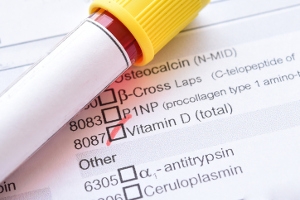 Coronary occlusion is the leading cause of death worldwide. Type 2 diabetes is spreading like a bushfire and this disease is characterized by atherosclerosis and early death. Diet and lifestyle are of vital importance and the same goes for vitamin D. According to a new American study that is published in Nutrients, people whose blood levels of vitamin D are above the official threshold levels have fewer biomarkers of cardiovascular disease, type 2 diabetes, and metabolic syndrome.
Coronary occlusion is the leading cause of death worldwide. Type 2 diabetes is spreading like a bushfire and this disease is characterized by atherosclerosis and early death. Diet and lifestyle are of vital importance and the same goes for vitamin D. According to a new American study that is published in Nutrients, people whose blood levels of vitamin D are above the official threshold levels have fewer biomarkers of cardiovascular disease, type 2 diabetes, and metabolic syndrome.
- in people aged 60 and older
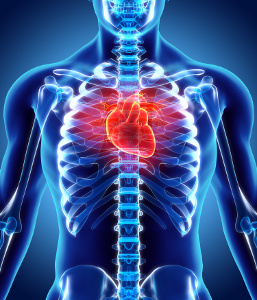 Cardiovascular disease is the leading cause of death worldwide, and our diet and lifestyle play a major role. According to an Australian study published in British Medical Journal, high-dosed vitamin D supplementation taken for several years lowers the risk of heart attacks or interventions such as angioplasty and by-pass surgery in people aged 60 years and older.
Cardiovascular disease is the leading cause of death worldwide, and our diet and lifestyle play a major role. According to an Australian study published in British Medical Journal, high-dosed vitamin D supplementation taken for several years lowers the risk of heart attacks or interventions such as angioplasty and by-pass surgery in people aged 60 years and older.
 Selenium supports a host of different metabolic processes and serves as an antioxidant that protects our cells. According to recent studies, selenium also has anti-ageing properties that protect us against cardiovascular disease, cancer, dementia, and other age-related diseases. According to a review article published in Medical News Today, selenium also helps against impaired immunity and counteracts chronic inflammation, which is typically seen in connection with ageing processes. A Swedish study of healthy seniors has even showed that supplementation with selenium and Q10 has a positive effect on heart function, quality of life, and life expectancy.
Selenium supports a host of different metabolic processes and serves as an antioxidant that protects our cells. According to recent studies, selenium also has anti-ageing properties that protect us against cardiovascular disease, cancer, dementia, and other age-related diseases. According to a review article published in Medical News Today, selenium also helps against impaired immunity and counteracts chronic inflammation, which is typically seen in connection with ageing processes. A Swedish study of healthy seniors has even showed that supplementation with selenium and Q10 has a positive effect on heart function, quality of life, and life expectancy.
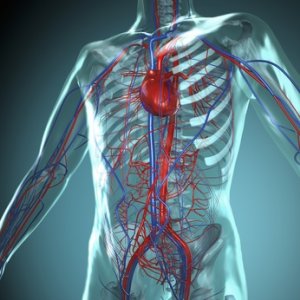 There is absolutely no reason not to consume eggs, meat, butter and other cholesterol-filled foods with a good conscience. American dietary guidelines have finally exonerated cholesterol, which happens to be an essential compound. Many scientists actually claim that atherosclerosis and cardiovascular disease are both a result of inflammation and lack of specific micronutrients. It is important to pay attention to factors that are known to promote inflammation in the body and take the necessary steps by looking after your circulatory system, making healthy lifestyle choices, and possibly even using supplements.
There is absolutely no reason not to consume eggs, meat, butter and other cholesterol-filled foods with a good conscience. American dietary guidelines have finally exonerated cholesterol, which happens to be an essential compound. Many scientists actually claim that atherosclerosis and cardiovascular disease are both a result of inflammation and lack of specific micronutrients. It is important to pay attention to factors that are known to promote inflammation in the body and take the necessary steps by looking after your circulatory system, making healthy lifestyle choices, and possibly even using supplements.
- and increases the risk of degenerative disease and early death
 It is commonly known that degenerative diseases such as cardiovascular disease, diabetes, kidney ailments, and liver diseases are often linked to poor quality of life and shorter lifespan. Supplementing with Q10, possibly in combination with selenium yeast, may have a positive influence on the mentioned conditions and lower your risk of premature death by as much as 50 percent or more. In fact, Q10 can help delay the ageing processes by protecting the heart, cardiovascular system, and cells, according to a large review article published online by NCBI (National Center for Biotechnology Information). As mentioned in this article, it is essential to use supplements that are pharmaceutical-grade in order to ensure proper absorption in blood and tissue.
It is commonly known that degenerative diseases such as cardiovascular disease, diabetes, kidney ailments, and liver diseases are often linked to poor quality of life and shorter lifespan. Supplementing with Q10, possibly in combination with selenium yeast, may have a positive influence on the mentioned conditions and lower your risk of premature death by as much as 50 percent or more. In fact, Q10 can help delay the ageing processes by protecting the heart, cardiovascular system, and cells, according to a large review article published online by NCBI (National Center for Biotechnology Information). As mentioned in this article, it is essential to use supplements that are pharmaceutical-grade in order to ensure proper absorption in blood and tissue.
 Women from the age of 50 years and older have an increased risk of blood sugar problems, weight problems, cardiovascular disease, and metabolic syndrome, if they lack vitamin D, according to a new study from Sao Paulo in Brazil. If you want to control your blood sugar levels and lose weight, it is not sufficient to eat less and work out at the gym. You also need sun exposure (without getting burned), because the summer sun is our richest source of vitamin D. You may even want to take a vitamin D supplement during the winter period.
Women from the age of 50 years and older have an increased risk of blood sugar problems, weight problems, cardiovascular disease, and metabolic syndrome, if they lack vitamin D, according to a new study from Sao Paulo in Brazil. If you want to control your blood sugar levels and lose weight, it is not sufficient to eat less and work out at the gym. You also need sun exposure (without getting burned), because the summer sun is our richest source of vitamin D. You may even want to take a vitamin D supplement during the winter period.
- for longer periods
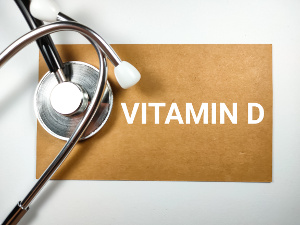 Vitamin D’s role in maintaining proper health is well documented. Still, many older people lack the nutrient and that increases their risk of bone fractures, blood poisoning, and disease complications that can eventually lead to hospitalization. Also, they risk prolonged hospitalization according to a new Irish study published in the scientific journal Nutrients. The scientists recommend giving vitamin D supplements to seniors to increase their blood levels of vitamin D. Other studies even suggest that this can protect against COVID-19, as low vitamin D status is associated with an increased risk of being hospitalized with the disease.
Vitamin D’s role in maintaining proper health is well documented. Still, many older people lack the nutrient and that increases their risk of bone fractures, blood poisoning, and disease complications that can eventually lead to hospitalization. Also, they risk prolonged hospitalization according to a new Irish study published in the scientific journal Nutrients. The scientists recommend giving vitamin D supplements to seniors to increase their blood levels of vitamin D. Other studies even suggest that this can protect against COVID-19, as low vitamin D status is associated with an increased risk of being hospitalized with the disease.
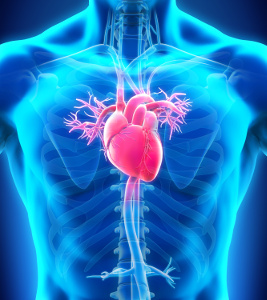 Atrial fibrillation is a rhythm disturbance in the electrical system of the heart. It is also one of the most common heart disorders and can be both harmless and potentially life-threatening. Lack of vitamin D increases the risk of normal atrial fibrillation and postoperative atrial fibrillation, according to a meta-analysis that is published in the scientific journal Nutrition. Vitamin D deficiencies are rather common so it is important to make sure to get enough of the nutrient for preventing and treating this disorder.
Atrial fibrillation is a rhythm disturbance in the electrical system of the heart. It is also one of the most common heart disorders and can be both harmless and potentially life-threatening. Lack of vitamin D increases the risk of normal atrial fibrillation and postoperative atrial fibrillation, according to a meta-analysis that is published in the scientific journal Nutrition. Vitamin D deficiencies are rather common so it is important to make sure to get enough of the nutrient for preventing and treating this disorder.
- and supplements save lives
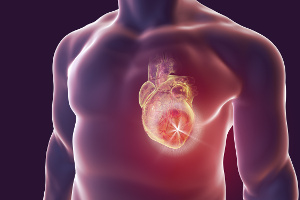 Vitamin D deficiencies are widespread and result in an increased risk of atherosclerosis, heart disease, and hypertension, according to a new study from University of South Australia. Because cardiovascular diseases are the leading cause of death globally, scientists see a huge potential in vitamin D, a nutrient that may be able to save millions of lives.
Vitamin D deficiencies are widespread and result in an increased risk of atherosclerosis, heart disease, and hypertension, according to a new study from University of South Australia. Because cardiovascular diseases are the leading cause of death globally, scientists see a huge potential in vitamin D, a nutrient that may be able to save millions of lives.
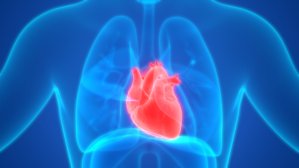 Get lots of sunlight. It is the richest source of vitamin D. Also make sure to take a vitamin D supplement if, for some reason or other, you are unable to get enough sun exposure – and most certainly during the winter period. Studies show that lack of vitamin D may lead to heart failure due to insulin resistance, which is an early stage of diabetes. In other words, having too little vitamin D in your blood may impair the heart’s ability to take up blood sugar and that can cause a morbid enlargement of the cardiac muscle. This was seen in an Indian study that is published in the journal Molecular Nutrition and Food Research. The scientists see vitamin D as having huge potential in the prevention and treatment of cardiac failure plus insulin resistance and diabetes that is spreading like a bushfire.
Get lots of sunlight. It is the richest source of vitamin D. Also make sure to take a vitamin D supplement if, for some reason or other, you are unable to get enough sun exposure – and most certainly during the winter period. Studies show that lack of vitamin D may lead to heart failure due to insulin resistance, which is an early stage of diabetes. In other words, having too little vitamin D in your blood may impair the heart’s ability to take up blood sugar and that can cause a morbid enlargement of the cardiac muscle. This was seen in an Indian study that is published in the journal Molecular Nutrition and Food Research. The scientists see vitamin D as having huge potential in the prevention and treatment of cardiac failure plus insulin resistance and diabetes that is spreading like a bushfire.
 Vitamin K is primarily for its role in helping blood coagulate. Otherwise, the vitamin is heavily underrated. For instance, the bones depend on vitamin K, and those people who consume the greatest amounts of vitamin K have the lowest risk of cardiovascular disease, atherosclerosis, and blood clots. It is important to know the difference between vitamin K1 and K2 and to know how well they get absorbed in the body.
Vitamin K is primarily for its role in helping blood coagulate. Otherwise, the vitamin is heavily underrated. For instance, the bones depend on vitamin K, and those people who consume the greatest amounts of vitamin K have the lowest risk of cardiovascular disease, atherosclerosis, and blood clots. It is important to know the difference between vitamin K1 and K2 and to know how well they get absorbed in the body.
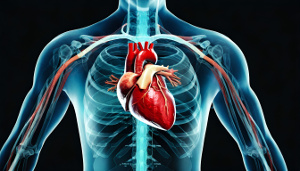 Having too little selenoprotein P in your blood increases the risk of heart failure, according to a Swedish population study, in which the authors look closer at selenoprotein P’s role as a marker of the body’s selenium status and as a precursor of other selenoproteins. We need more than 100 micrograms of selenium daily to properly saturate selenoprotein P, but because the European soil is low in selenium it is difficult to get enough from the diet.
Having too little selenoprotein P in your blood increases the risk of heart failure, according to a Swedish population study, in which the authors look closer at selenoprotein P’s role as a marker of the body’s selenium status and as a precursor of other selenoproteins. We need more than 100 micrograms of selenium daily to properly saturate selenoprotein P, but because the European soil is low in selenium it is difficult to get enough from the diet.
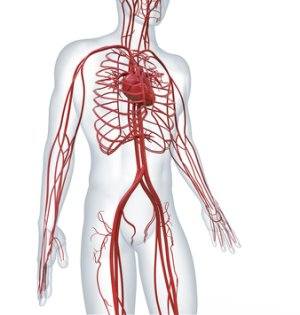 In a matter of four months only, large doses of vitamin D were able to reduce arterial stiffness in young, overweight but otherwise healthy Afro-Americans, according to a study from Georgia, the United States. The study also showed that those participants, who only took the officially recommended quantities of vitamin D, had increased arterial stiffness. This suggests that the official vitamin D recommendations are too low to prevent stiff arteries and atherosclerosis. Another thing is that dark-skinned people living at northern latitudes, overweight individuals, older people diabetics, and those who overuse sun screen are at increased risk of synthesizing too little vitamin D.
In a matter of four months only, large doses of vitamin D were able to reduce arterial stiffness in young, overweight but otherwise healthy Afro-Americans, according to a study from Georgia, the United States. The study also showed that those participants, who only took the officially recommended quantities of vitamin D, had increased arterial stiffness. This suggests that the official vitamin D recommendations are too low to prevent stiff arteries and atherosclerosis. Another thing is that dark-skinned people living at northern latitudes, overweight individuals, older people diabetics, and those who overuse sun screen are at increased risk of synthesizing too little vitamin D.
 Potassium and sodium (which is found in regular table salt) work together in an elaborate and essential way in the body. Unfortunately, we get far too much concealed salt from industrially processed foods, and our intake of potassium from vegetables is often too low. This increases our risk of elevated blood pressure and stroke. Nonetheless, people on low-sodium diets have a lower risk of suffering a stroke and dying, according to a large Chinese study. The scientists assume that sodium may represent an inexpensive and simple way to improve public health. How important is it really to have the proper balance between sodium and potassium?
Potassium and sodium (which is found in regular table salt) work together in an elaborate and essential way in the body. Unfortunately, we get far too much concealed salt from industrially processed foods, and our intake of potassium from vegetables is often too low. This increases our risk of elevated blood pressure and stroke. Nonetheless, people on low-sodium diets have a lower risk of suffering a stroke and dying, according to a large Chinese study. The scientists assume that sodium may represent an inexpensive and simple way to improve public health. How important is it really to have the proper balance between sodium and potassium?
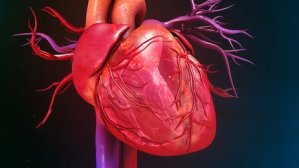 It is essential that your heart is able to pump optimally throughout life. A study from Medical College of Georgia, Augusta University, the United States, has just shown that a diet with low levels of vitamin K1 from dark, leafy greens increases your risk of an unhealthy enlargement of the heart’s left ventricle that pumps the oxygenated blood to the aorta (the body’s largest artery). The scientists even observed this enlargement in teenagers. Vitamin K1 is primarily known for its role in the blood coagulation process, but it is also converted to vitamin K2 in our gut flora. In fact, it is vitamin K2 that is important for the heart and cardiovascular system.
It is essential that your heart is able to pump optimally throughout life. A study from Medical College of Georgia, Augusta University, the United States, has just shown that a diet with low levels of vitamin K1 from dark, leafy greens increases your risk of an unhealthy enlargement of the heart’s left ventricle that pumps the oxygenated blood to the aorta (the body’s largest artery). The scientists even observed this enlargement in teenagers. Vitamin K1 is primarily known for its role in the blood coagulation process, but it is also converted to vitamin K2 in our gut flora. In fact, it is vitamin K2 that is important for the heart and cardiovascular system.
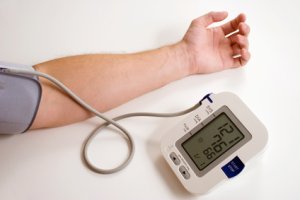 Cardiovascular disease is one of the leading causes of death. It is therefore vital to get enough magnesium because according to research, low blood levels of magnesium are linked to an increased risk of atherosclerosis, hypertension, and type-2 diabetes.
Cardiovascular disease is one of the leading causes of death. It is therefore vital to get enough magnesium because according to research, low blood levels of magnesium are linked to an increased risk of atherosclerosis, hypertension, and type-2 diabetes.
 Cardiovascular disease is the leading cause of death worldwide but a new Dutch study has revealed that older patients who have suffered a previous heart attack can lower their risk of early death caused by cardiovascular disease and other causes by getting enough magnesium. Magnesium deficiencies are rather common because of unhealthy eating habits, and there are also certain types of medicine that impair the body’s ability to absorb and utilize magnesium.
Cardiovascular disease is the leading cause of death worldwide but a new Dutch study has revealed that older patients who have suffered a previous heart attack can lower their risk of early death caused by cardiovascular disease and other causes by getting enough magnesium. Magnesium deficiencies are rather common because of unhealthy eating habits, and there are also certain types of medicine that impair the body’s ability to absorb and utilize magnesium.
it’s the ultimate and essential “brainwash”
 Groundbreaking research reveals that the human brain is detoxified during our sleep. On the other hand, toxins accumulate in the brain if we suffer from sleep disturbances, increasing our risk of dementia, Alzheimer’s disease, stroke, and numerous other conditions. If you are not helped by the most common guidelines for better sleep, supplementing with the “sleep hormone” melatonin may be an obvious solution that even offers plenty of positive “side effects.”
Groundbreaking research reveals that the human brain is detoxified during our sleep. On the other hand, toxins accumulate in the brain if we suffer from sleep disturbances, increasing our risk of dementia, Alzheimer’s disease, stroke, and numerous other conditions. If you are not helped by the most common guidelines for better sleep, supplementing with the “sleep hormone” melatonin may be an obvious solution that even offers plenty of positive “side effects.”
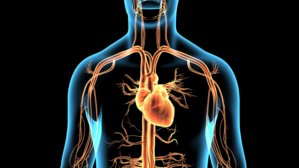 Melatonin is primarily known as a sleep hormone and a powerful antioxidant. According to a new study, melatonin may even improve the condition of rats that have heart rhythm disturbances with an increased risk of heart attack. Melatonin’s ability to improve the heart function is not related to its antioxidant function, however, and that surprised the scientists behind the study. The new study was presented at an annual meeting for the American Physiological Society (APS) in Orlando. Melatonin has several vital functions, but as we age our endogenous production decreases. Not only does this affect our quality of sleep, it also has a negative impact on the heart and the body’s cells.
Melatonin is primarily known as a sleep hormone and a powerful antioxidant. According to a new study, melatonin may even improve the condition of rats that have heart rhythm disturbances with an increased risk of heart attack. Melatonin’s ability to improve the heart function is not related to its antioxidant function, however, and that surprised the scientists behind the study. The new study was presented at an annual meeting for the American Physiological Society (APS) in Orlando. Melatonin has several vital functions, but as we age our endogenous production decreases. Not only does this affect our quality of sleep, it also has a negative impact on the heart and the body’s cells.
– but focus on sodium if you have high blood pressure
 Salt is a flavor enhancer, and the good news is that salt is not as harmful as previously thought. In fact, salt is essential when consumed in the right quantities, and for most people, it poses no health risk to consume up to five grams – or two and half teaspoons – of salt daily, according to a study that is published in the Lancet. Many people on anti-hypertensive drugs are advised to cut back on their salt intake, but it takes more than that. In fact, it is potassium that controls how much salt the kidneys excrete.
Salt is a flavor enhancer, and the good news is that salt is not as harmful as previously thought. In fact, salt is essential when consumed in the right quantities, and for most people, it poses no health risk to consume up to five grams – or two and half teaspoons – of salt daily, according to a study that is published in the Lancet. Many people on anti-hypertensive drugs are advised to cut back on their salt intake, but it takes more than that. In fact, it is potassium that controls how much salt the kidneys excrete.
 Many older people sleep poorly and tend to have elevated blood pressure. Luckily, supplementation with melatonin seems to correct both problems. Melatonin can even improve sleep in people who take beta-blockers for high blood pressure. So what is melatonin, and why is this substance particularly useful for older people?
Many older people sleep poorly and tend to have elevated blood pressure. Luckily, supplementation with melatonin seems to correct both problems. Melatonin can even improve sleep in people who take beta-blockers for high blood pressure. So what is melatonin, and why is this substance particularly useful for older people?
 Eat plenty of oily fish from clean oceans or take a fish oil supplement to make sure that you get enough of the essential omega-3 fatty acids. It lowers your risk of premature death by protecting you against atherosclerosis and a number of other diseases. In fact, blood levels of omega-3 tell a lot more than levels of cholesterol, according to a new study that is published in Journal of Clinical Lipidology.
Eat plenty of oily fish from clean oceans or take a fish oil supplement to make sure that you get enough of the essential omega-3 fatty acids. It lowers your risk of premature death by protecting you against atherosclerosis and a number of other diseases. In fact, blood levels of omega-3 tell a lot more than levels of cholesterol, according to a new study that is published in Journal of Clinical Lipidology.
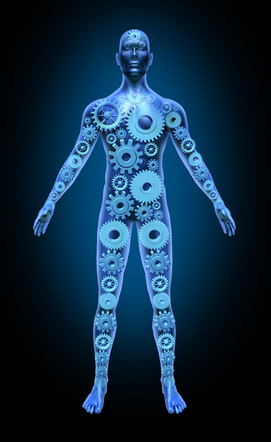 The cellular energy turnover takes place inside some small powerhouses called mitochondria. The condition of these tiny structures is determining for our energy levels and health. That is why it is vital that the mitochondria are adequately supplied with all the necessary nutrients. Q10 and magnesium play a particularly important role.
The cellular energy turnover takes place inside some small powerhouses called mitochondria. The condition of these tiny structures is determining for our energy levels and health. That is why it is vital that the mitochondria are adequately supplied with all the necessary nutrients. Q10 and magnesium play a particularly important role.
- but may he helped with Q10
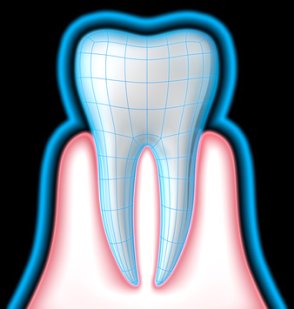 Periodontal disease (tooth loss) affects most of us at some point. Because it is an insidious disease, it is important to set in with early prevention on several accounts. It is not a matter of saving your teeth and smile - your heart and cardiovascular system are also a target of the ailment.
Periodontal disease (tooth loss) affects most of us at some point. Because it is an insidious disease, it is important to set in with early prevention on several accounts. It is not a matter of saving your teeth and smile - your heart and cardiovascular system are also a target of the ailment.
 Q10 is a lipid-soluble coenzyme that is found in all the body's cells, except for the red blood cells. Carbohydrate, fat, and protein get converted into energy by means of Q10 and the oxygen we breathe. This process takes place inside the small, cellular power stations called mitochondria. To begin with, Q10 contributes to storing the energy in a chemical form called ATP (adenosine triphosphate). After that, Q10 makes sure that the energy is released in step with the shifting energy requirement of the cells.
Q10 is a lipid-soluble coenzyme that is found in all the body's cells, except for the red blood cells. Carbohydrate, fat, and protein get converted into energy by means of Q10 and the oxygen we breathe. This process takes place inside the small, cellular power stations called mitochondria. To begin with, Q10 contributes to storing the energy in a chemical form called ATP (adenosine triphosphate). After that, Q10 makes sure that the energy is released in step with the shifting energy requirement of the cells.
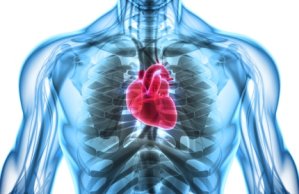 Q10 and selenium are powerful antioxidants that are important for the heart, cardiovascular system, and the energy turnover. As we grow older, our endogenous Q10 synthesis decreases, and many people lack selenium. A Swedish study has shown that older people who take supplements of Q10 and selenium have a 50 percent lower cardiovascular death rate. Another (more recent) Swedish study shows that Q10 and selenium also increase elderly peoples’ levels of IGF-1, a hormone with many functions in the body. The scientists assume that this helps reduce the risk of cardiac death among elderly people.
Q10 and selenium are powerful antioxidants that are important for the heart, cardiovascular system, and the energy turnover. As we grow older, our endogenous Q10 synthesis decreases, and many people lack selenium. A Swedish study has shown that older people who take supplements of Q10 and selenium have a 50 percent lower cardiovascular death rate. Another (more recent) Swedish study shows that Q10 and selenium also increase elderly peoples’ levels of IGF-1, a hormone with many functions in the body. The scientists assume that this helps reduce the risk of cardiac death among elderly people.
 The number of seniors in the world is growing. It hardly comes as a surprise that old people wish to stay mentally and physically fit and enjoy every minute of the of life. Nonetheless, many middle-aged and older people feel tired and lethargic, or they suffer from chronic diseases that impair their quality of life and are associated with shorter life expectancy. In his book, Coenzyme Q10 – An Insider’s Guide, Dr. William V. Judy looks closer at how Q10 is able to delay the ageing process at a cellular level by increasing energy levels, supporting heart health, and preventing atherosclerosis and other chronic diseases that are linked to ageing. Combined supplementation with Q10 and selenium can even delay the risk of early death by over 50 percent. Dr. Judy makes a point of saying how important it is to choose pharmaceutical-grade Q10 that the body can absorb and utilize.
The number of seniors in the world is growing. It hardly comes as a surprise that old people wish to stay mentally and physically fit and enjoy every minute of the of life. Nonetheless, many middle-aged and older people feel tired and lethargic, or they suffer from chronic diseases that impair their quality of life and are associated with shorter life expectancy. In his book, Coenzyme Q10 – An Insider’s Guide, Dr. William V. Judy looks closer at how Q10 is able to delay the ageing process at a cellular level by increasing energy levels, supporting heart health, and preventing atherosclerosis and other chronic diseases that are linked to ageing. Combined supplementation with Q10 and selenium can even delay the risk of early death by over 50 percent. Dr. Judy makes a point of saying how important it is to choose pharmaceutical-grade Q10 that the body can absorb and utilize.
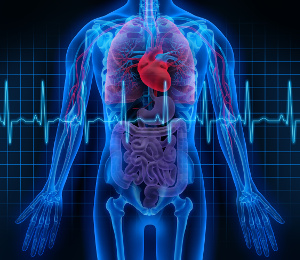 Cardiovascular diseases are widespread and one of the major causes of death. The risk is increased by factors such as ageing, diabetes, and overweight. One of the underlying causes is oxidative stress, which is an imbalance between free radicals and antioxidants. Q10, which is involved in cellular energy turnover, happens to be one of the most powerful antioxidants. According to a review article that is published in the scientific journal Antioxidants, supplementation with Q10 can reduce oxidative stress and cardiovascular mortality. It can also improve quality of life and increase the chances of survival. Generally speaking, Q10 has a huge potential for anyone with a desire to remain healthy, and it is important to choose a supplement with documented quality and bioavailability.
Cardiovascular diseases are widespread and one of the major causes of death. The risk is increased by factors such as ageing, diabetes, and overweight. One of the underlying causes is oxidative stress, which is an imbalance between free radicals and antioxidants. Q10, which is involved in cellular energy turnover, happens to be one of the most powerful antioxidants. According to a review article that is published in the scientific journal Antioxidants, supplementation with Q10 can reduce oxidative stress and cardiovascular mortality. It can also improve quality of life and increase the chances of survival. Generally speaking, Q10 has a huge potential for anyone with a desire to remain healthy, and it is important to choose a supplement with documented quality and bioavailability.
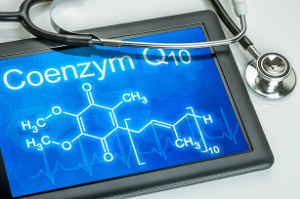 Q10 is involved in the cellular energy turnover and it is also a powerful antioxidant that protects cells, tissues, and the cardiovascular system in several ways. Humans synthesize most of their own Q10 but the endogenous production of the compound decreases with age. Besides, certain diseases are associated with lowered endogenous coenzyme Q10 synthesis, and scientists have observed that Q10 supplementation has the potential to attenuate various symptoms linked to heart disease, diabetes, kidney disease, migraine, chronic fatigue syndrome, and fibromyalgia. Q10 can also improve the heart function in older, healthy people, thereby lowering their risk of dying of heart disease. It is difficult for the body to absorb Q10, which is why scientists emphasize the importance of using pharmaceutical-grade supplements. This topic was addressed in a review article published online by www.nutraingredients.com.
Q10 is involved in the cellular energy turnover and it is also a powerful antioxidant that protects cells, tissues, and the cardiovascular system in several ways. Humans synthesize most of their own Q10 but the endogenous production of the compound decreases with age. Besides, certain diseases are associated with lowered endogenous coenzyme Q10 synthesis, and scientists have observed that Q10 supplementation has the potential to attenuate various symptoms linked to heart disease, diabetes, kidney disease, migraine, chronic fatigue syndrome, and fibromyalgia. Q10 can also improve the heart function in older, healthy people, thereby lowering their risk of dying of heart disease. It is difficult for the body to absorb Q10, which is why scientists emphasize the importance of using pharmaceutical-grade supplements. This topic was addressed in a review article published online by www.nutraingredients.com.
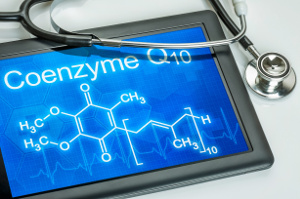 Diabetes damages the circulatory system in a number of ways that are linked to impaired quality of life and early death. A meta-analysis shows that if type 2 diabetics take supplements of Q10 it lowers their risk of cardiovascular disease by reducing levels of total cholesterol and LDL cholesterol. Another positive effect of Q10 is that it serves as a unique antioxidant that counteracts oxidative stress, which is a major cause of atherosclerosis and cardiovascular damage. One of the problems of using cholesterol-lowering statins is that it inhibits the body’s endogenous Q10 synthesis, but this is something one can compensate for. According to Danish research, it is also a good idea to limit your carbohydrate intake and follow the new dietary guidelines that help stabilize blood sugar levels.
Diabetes damages the circulatory system in a number of ways that are linked to impaired quality of life and early death. A meta-analysis shows that if type 2 diabetics take supplements of Q10 it lowers their risk of cardiovascular disease by reducing levels of total cholesterol and LDL cholesterol. Another positive effect of Q10 is that it serves as a unique antioxidant that counteracts oxidative stress, which is a major cause of atherosclerosis and cardiovascular damage. One of the problems of using cholesterol-lowering statins is that it inhibits the body’s endogenous Q10 synthesis, but this is something one can compensate for. According to Danish research, it is also a good idea to limit your carbohydrate intake and follow the new dietary guidelines that help stabilize blood sugar levels.
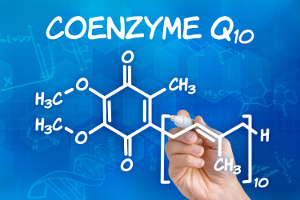 Q10 is a unique compound with a key role in cellular energy turnover. It also serves as a powerful antioxidant. The body is able to synthesize most of the Q10 that it needs but as we grow older, our endogenous synthesis decreases, making us vulnerable in different ways. Cholesterol-lowering medicine and certain types of disease are also associated with lower levels of Q10 in the body. In a new review article, a group of scientists have scrutinized hundreds of Q10 studies that have been published in the years 2010-2020. They are able to conclude that Q10 is of particular importance to the heart, circulatory system, fertility, muscles, eyes and vision, and the ageing process. Things like migraines, chronic fatigue syndrome, and neurodegenerative diseases such as Parkinson’s and Alzheimer’s disease are also addressed. The body has difficulty with absorbing Q10 from food and supplements so it is recommendable to always choose a pharmaceutical-grade Q10 preparation with documented bioavailability.
Q10 is a unique compound with a key role in cellular energy turnover. It also serves as a powerful antioxidant. The body is able to synthesize most of the Q10 that it needs but as we grow older, our endogenous synthesis decreases, making us vulnerable in different ways. Cholesterol-lowering medicine and certain types of disease are also associated with lower levels of Q10 in the body. In a new review article, a group of scientists have scrutinized hundreds of Q10 studies that have been published in the years 2010-2020. They are able to conclude that Q10 is of particular importance to the heart, circulatory system, fertility, muscles, eyes and vision, and the ageing process. Things like migraines, chronic fatigue syndrome, and neurodegenerative diseases such as Parkinson’s and Alzheimer’s disease are also addressed. The body has difficulty with absorbing Q10 from food and supplements so it is recommendable to always choose a pharmaceutical-grade Q10 preparation with documented bioavailability.
 Selenium is a trace element that is found in all the cells of the body. An adult contains around 10-15 mg of selenium with the largest concentrations being found in the liver, kidneys, thyroid gland, sexual gland (gonads), and semen. Selenium supports over 30 different selenoproteins that have a number of different functions. Among these are five glutathione peroxidases (GSH-Px) that function as antioxidants, and three deiodinases that regulate the metabolism. Of all minerals, selenium is the one that holds the greatest antioxidant potential. It works in close collaboration with vitamin E to prevent oxidative damage to cell membranes, lipids, and DNA. Selenium and sulfur bear great chemical resemblances, but sulfur is not an antioxidant and has other functions in the body.
Selenium is a trace element that is found in all the cells of the body. An adult contains around 10-15 mg of selenium with the largest concentrations being found in the liver, kidneys, thyroid gland, sexual gland (gonads), and semen. Selenium supports over 30 different selenoproteins that have a number of different functions. Among these are five glutathione peroxidases (GSH-Px) that function as antioxidants, and three deiodinases that regulate the metabolism. Of all minerals, selenium is the one that holds the greatest antioxidant potential. It works in close collaboration with vitamin E to prevent oxidative damage to cell membranes, lipids, and DNA. Selenium and sulfur bear great chemical resemblances, but sulfur is not an antioxidant and has other functions in the body.
 Selenium is a trace element with a number of essential functions. An estimated one billion people worldwide get too little dietary selenium. The problem is mainly a result of nutrient-depleted farmland. Moreover, blood levels of selenium drop drastically in connection with COVID-19 infections, serious illness, and pregnancy because the body has an increased need for the nutrient. Altogether, selenium deficiency increases the risk of complicated COVID-19 infections, autoimmune diseases such as rheumatoid arthritis, Hashimoto’s thyroiditis, preterm delivery, and miscarriage. Supplementation may help optimize blood levels of selenium, which can be relevant for preventing and treating a number of common diseases, according to an article that is published in International Journal of Medical Sciences.
Selenium is a trace element with a number of essential functions. An estimated one billion people worldwide get too little dietary selenium. The problem is mainly a result of nutrient-depleted farmland. Moreover, blood levels of selenium drop drastically in connection with COVID-19 infections, serious illness, and pregnancy because the body has an increased need for the nutrient. Altogether, selenium deficiency increases the risk of complicated COVID-19 infections, autoimmune diseases such as rheumatoid arthritis, Hashimoto’s thyroiditis, preterm delivery, and miscarriage. Supplementation may help optimize blood levels of selenium, which can be relevant for preventing and treating a number of common diseases, according to an article that is published in International Journal of Medical Sciences.
 Lack of selenium, an essential trace element, may cause thyroid disorders, cardiovascular disease, virus infections, AIDS, infertility, neurological disturbances, and cancer. An estimated one billion people worldwide are selenium-deficient. This is mainly a result of nutrient-depleted soil, which is a real problem in places like Europe. For decades, scientists have been warning about this problem, and a lot suggests that we need more than the officially recommended intake to protect ourselves effectively against disease, according to a review article published in StatPearls.
Lack of selenium, an essential trace element, may cause thyroid disorders, cardiovascular disease, virus infections, AIDS, infertility, neurological disturbances, and cancer. An estimated one billion people worldwide are selenium-deficient. This is mainly a result of nutrient-depleted soil, which is a real problem in places like Europe. For decades, scientists have been warning about this problem, and a lot suggests that we need more than the officially recommended intake to protect ourselves effectively against disease, according to a review article published in StatPearls.
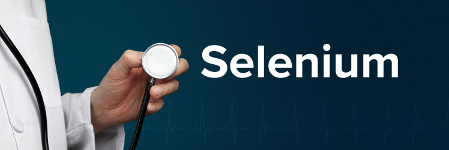 Selenium supports a variety of different selenoproteins and antioxidants that are important for our immune defense, circulatory system, cancer protection, metabolism, gut flora, fertility, nervous system, and general health. This is described in two meta-analyses that are published in Frontiers in Nutrition. The authors mention that there is widespread selenium deficiency in large parts of the world, Europe included, and that this is a public health problem. The big question is how much selenium we need to effectively prevent and treat many chronic illnesses.
Selenium supports a variety of different selenoproteins and antioxidants that are important for our immune defense, circulatory system, cancer protection, metabolism, gut flora, fertility, nervous system, and general health. This is described in two meta-analyses that are published in Frontiers in Nutrition. The authors mention that there is widespread selenium deficiency in large parts of the world, Europe included, and that this is a public health problem. The big question is how much selenium we need to effectively prevent and treat many chronic illnesses.
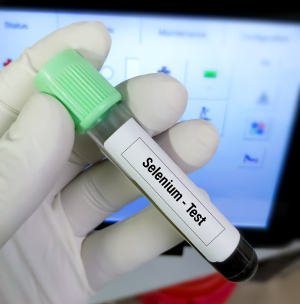 Over the past decades, numerous studies have linked low selenium levels in the blood to cardiovascular disease, cancer, increased risk of infection, thyroid disorders, and several other diseases. Due to the widespread problems with selenium deficiency, supplementation with this nutrient is of potential value to our general health. In a review article that is published in Oxidative Medicine and Cellular Longevity, the authors look at selenium’s role in connection with a host of different diseases and metabolic disorders.
Over the past decades, numerous studies have linked low selenium levels in the blood to cardiovascular disease, cancer, increased risk of infection, thyroid disorders, and several other diseases. Due to the widespread problems with selenium deficiency, supplementation with this nutrient is of potential value to our general health. In a review article that is published in Oxidative Medicine and Cellular Longevity, the authors look at selenium’s role in connection with a host of different diseases and metabolic disorders.
 Living in contradiction with the body’s natural sleep-wake cycle may be life-threatening, as shift work reduces the body’s production of melatonin, which controls our sleep pattern and many general physiological processes. However, taking melatonin supplements may compensate for the lowered endogenous production and even for shift work and other disturbances of the body’s sleep-wake cycle.
Living in contradiction with the body’s natural sleep-wake cycle may be life-threatening, as shift work reduces the body’s production of melatonin, which controls our sleep pattern and many general physiological processes. However, taking melatonin supplements may compensate for the lowered endogenous production and even for shift work and other disturbances of the body’s sleep-wake cycle.
 Swedish scientists wrote medical history when they discovered that supplementation with Q10 and selenium could halve a person's risk of dying from cardiovascular disease. Now, a 10-year follow-up of the Swedish study shows that taking these two supplements even has a notable long-term effect on cardiac function and lifespan.
Swedish scientists wrote medical history when they discovered that supplementation with Q10 and selenium could halve a person's risk of dying from cardiovascular disease. Now, a 10-year follow-up of the Swedish study shows that taking these two supplements even has a notable long-term effect on cardiac function and lifespan.
 Here is the formula for quality of life in seniors
Here is the formula for quality of life in seniors
Besides cutting the number cardiovascular deaths in half, elderly people who take supplements of selenium and coenzyme Q10 have better quality of life, are less prone to disease, and have more energy than those who do not take the supplements.
- and the huge difference between the omega-3 forms ALA, EPA, and DHA
 Most people lack omega-3 fatty acids acids that are vital for the brain, the nervous system, and the cardiovascular system. Omega-3 fatty acids also have anti-inflammatory and cancer-fighting properties. It is important to consume omega-3 and omega-6 fatty acids in the right balance in order to benefit from their many health effects. But how do we make sure to get enough omega-3 fatty acids that we can utilize? And what is the difference between ALA, EPA, and DHA?
Most people lack omega-3 fatty acids acids that are vital for the brain, the nervous system, and the cardiovascular system. Omega-3 fatty acids also have anti-inflammatory and cancer-fighting properties. It is important to consume omega-3 and omega-6 fatty acids in the right balance in order to benefit from their many health effects. But how do we make sure to get enough omega-3 fatty acids that we can utilize? And what is the difference between ALA, EPA, and DHA?
 It is commonly known that fish oil with its high content of the two omega-3 fatty acids EPA and DHA helps prevent atherosclerosis. According to a new international study, it appears to be DHA that has the major effect. This new insight, which has surprised the scientists, is relevant to public health because cardiovascular disease continues to be the leading cause of death.
It is commonly known that fish oil with its high content of the two omega-3 fatty acids EPA and DHA helps prevent atherosclerosis. According to a new international study, it appears to be DHA that has the major effect. This new insight, which has surprised the scientists, is relevant to public health because cardiovascular disease continues to be the leading cause of death.
 There are several kinds of vitamin D with the two most important being:
There are several kinds of vitamin D with the two most important being:
- D2, ergocalciferol, that is found naturally in the plant kingdom.
- Vitamin D3, cholecalciferol, that is found naturally in the animal kingdom.
Humans synthesise vitamin D (cholecalciferol) from sunlight (UV-B rays) and a cholesterol compound in the skin, which is converted to active vitamins by means of processes in the liver and kidneys. We humans are only able to synthesise vitamin D during the summer season when the sun is high in the sky. Excess amounts of the nutrient are stored in the liver for future use. Light skin produces substantially larger amounts of vitamin D than dark skin. In contrast, dark skin protects against vitamin D overproduction. As we grow older, our vitamin D production decreases. Vitamin D is also called a provitamin or hormone, simply because we are easily able to make it ourselves, and all cells in the body have vitamin D receptors.
Vitamin D is fat-soluble and is stored in the body's fat tissue when ingested in large amounts. Vitamin D is destroyed by light and heat from cooking.
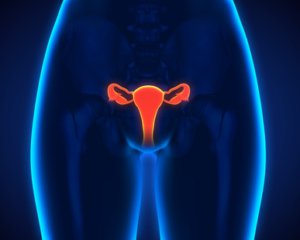 According to a large American study, a high dietary intake of vitamin D and calcium is associated with a lower risk of early-onset menopause, where the menstrual periods cease before a woman reaches 45 years of age. Premature menopause affects around 10 percent of women, and the condition increases the risk of impaired fertility, osteoporosis, cardiovascular disease, and earlier cognitive impairment. The prevention of these diseases is also a matter of getting enough sunshine, magnesium, and omega-3.
According to a large American study, a high dietary intake of vitamin D and calcium is associated with a lower risk of early-onset menopause, where the menstrual periods cease before a woman reaches 45 years of age. Premature menopause affects around 10 percent of women, and the condition increases the risk of impaired fertility, osteoporosis, cardiovascular disease, and earlier cognitive impairment. The prevention of these diseases is also a matter of getting enough sunshine, magnesium, and omega-3.
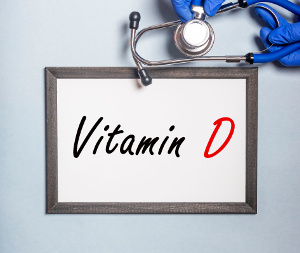 Vitamin D plays a major role in our health. The main focus, however, is on vitamin D’s importance for bones, while many health professionals are totally unaware of the nutrient’s other essential functions. According to a review article published in Nutrients, half the global population has low vitamin D levels in the blood, which increases the risk of cardiovascular disease, hypertension, cancer, type 2 diabetes, Alzheimer’s disease, respiratory infections like COVID-19, and early death. The authors also mention that vitamin D science is often inadequate or misleading because studies focus on supplementation rather than looking at blood levels of 25(OH)D. Consequently, trials are often made with far too small vitamin D doses or with too a short a trial period. In either case, blood levels of vitamin D fail to reach their optimum. What is more, levels of 25(OH)D in the blood should ideally be above 75 nmol/L in order to protect against cardiovascular disease, cancer, and early death. Because this threshold level is higher than the official threshold levels, the scientists recommend high-dosed vitamin D levels as a way to reach an optimal nutrient status.
Vitamin D plays a major role in our health. The main focus, however, is on vitamin D’s importance for bones, while many health professionals are totally unaware of the nutrient’s other essential functions. According to a review article published in Nutrients, half the global population has low vitamin D levels in the blood, which increases the risk of cardiovascular disease, hypertension, cancer, type 2 diabetes, Alzheimer’s disease, respiratory infections like COVID-19, and early death. The authors also mention that vitamin D science is often inadequate or misleading because studies focus on supplementation rather than looking at blood levels of 25(OH)D. Consequently, trials are often made with far too small vitamin D doses or with too a short a trial period. In either case, blood levels of vitamin D fail to reach their optimum. What is more, levels of 25(OH)D in the blood should ideally be above 75 nmol/L in order to protect against cardiovascular disease, cancer, and early death. Because this threshold level is higher than the official threshold levels, the scientists recommend high-dosed vitamin D levels as a way to reach an optimal nutrient status.
 Lack of vitamin E increases your risk of fertility problems, atherosclerosis, blood clots, and Alzheimer's disease. The diet contains eight different forms of vitamin E. The vitamin is also available in supplement form, either as natural or synthetic vitamin E, and there are huge differences in terms of their effect.
Lack of vitamin E increases your risk of fertility problems, atherosclerosis, blood clots, and Alzheimer's disease. The diet contains eight different forms of vitamin E. The vitamin is also available in supplement form, either as natural or synthetic vitamin E, and there are huge differences in terms of their effect.
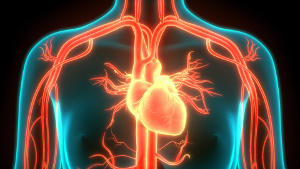 The diet’s content of vitamin K1 and vitamin K2 lowers the risk of atherosclerosis and cardiovascular disease by way of several mechanisms, yet there are relatively few studies that show the relation. In a Danish study that is published in Journal of the American Heart Association, scientists looked closer at how the content of the two forms vitamin K in the diet affect the risk of hospitalization linked to atherosclerosis and cardiovascular disease. So how does vitamin K counteract atherosclerosis and how much of the nutrient do we need?
The diet’s content of vitamin K1 and vitamin K2 lowers the risk of atherosclerosis and cardiovascular disease by way of several mechanisms, yet there are relatively few studies that show the relation. In a Danish study that is published in Journal of the American Heart Association, scientists looked closer at how the content of the two forms vitamin K in the diet affect the risk of hospitalization linked to atherosclerosis and cardiovascular disease. So how does vitamin K counteract atherosclerosis and how much of the nutrient do we need?
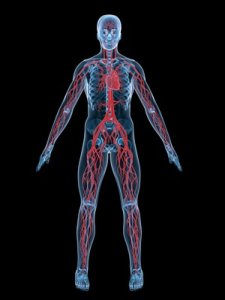 Lack of vitamin K2 increases your risk of stiff arteries and atherosclerosis, which is the leading cause of death worldwide. This was observed in two new studies, one that is published in the American Journal of Hypertension, the other in the journal Nephron. A third study that is published in Clinical Nutrition reveals that daily supplementation with vitamin K2 lowers the risk of early death caused by cardiovascular disease. Our diet used to provide substantially more vitamin K2 from fermented foods than now, and this type of food deserves a comeback. It is also important to know the difference between vitamin K1 and vitamin K2.
Lack of vitamin K2 increases your risk of stiff arteries and atherosclerosis, which is the leading cause of death worldwide. This was observed in two new studies, one that is published in the American Journal of Hypertension, the other in the journal Nephron. A third study that is published in Clinical Nutrition reveals that daily supplementation with vitamin K2 lowers the risk of early death caused by cardiovascular disease. Our diet used to provide substantially more vitamin K2 from fermented foods than now, and this type of food deserves a comeback. It is also important to know the difference between vitamin K1 and vitamin K2.
- even in smokers
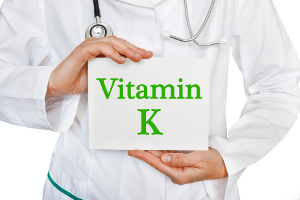 It has been known for long that vitamin K2 is important for circulation and bone health. According to a new study, vitamin K2 also lowers the risk of cardiovascular disease in smokers and other nicotine users. This is because vitamin K2 counteracts oxidative stress and atherosclerosis. The scientists stress how important vitamin K2 is for public health, including otherwise unhealthy groups such as smokers.
It has been known for long that vitamin K2 is important for circulation and bone health. According to a new study, vitamin K2 also lowers the risk of cardiovascular disease in smokers and other nicotine users. This is because vitamin K2 counteracts oxidative stress and atherosclerosis. The scientists stress how important vitamin K2 is for public health, including otherwise unhealthy groups such as smokers.
 Cardiovascular diseases are the leading cause of death and, as it turns out, alarming problems with vitamin K2 deficiency are a contributing factor, according to a new review article that is published in Open Heart. Vitamin K2 regulates the body’s calcium distribution and lack of the vitamin increases the risk of atherosclerosis, arterial stiffness, insulin resistance, and heart failure. Supplementation with vitamin K2 has been seen to improve circulatory health in a number of different ways, and it also has a positive effect on inflammation and type 2 diabetes. Unfortunately, modern diets are not all that rich in vitamin K2 and the problem is made worse by the fact that different types of medicine disrupt the body’s ability to utilize the nutrient.
Cardiovascular diseases are the leading cause of death and, as it turns out, alarming problems with vitamin K2 deficiency are a contributing factor, according to a new review article that is published in Open Heart. Vitamin K2 regulates the body’s calcium distribution and lack of the vitamin increases the risk of atherosclerosis, arterial stiffness, insulin resistance, and heart failure. Supplementation with vitamin K2 has been seen to improve circulatory health in a number of different ways, and it also has a positive effect on inflammation and type 2 diabetes. Unfortunately, modern diets are not all that rich in vitamin K2 and the problem is made worse by the fact that different types of medicine disrupt the body’s ability to utilize the nutrient.
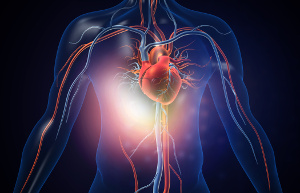 Cardiovascular disease is still the leading cause of death, and both diet and lifestyle are of huge importance. According to a new meta-analysis, fish oil, folic acid, and Q10 are some of nutrients with the greatest potential to lower the risk. It is important to underline that supplements are not likely to make much of a difference if the dosage is too low or if the quality of the preparations is poor.
Cardiovascular disease is still the leading cause of death, and both diet and lifestyle are of huge importance. According to a new meta-analysis, fish oil, folic acid, and Q10 are some of nutrients with the greatest potential to lower the risk. It is important to underline that supplements are not likely to make much of a difference if the dosage is too low or if the quality of the preparations is poor.
- and why are deficiencies so common?
 Magnesium plays a vital role in the body’s calcium distribution and is involved in over 300 enzyme processes that are relevant for our bones, circulatory system, muscles, nervous system, blood pressure, blood sugar levels, immune system, and utilization of vitamin D. For that reason, too little magnesium increases your risk of osteoporosis, diabetes, cardiovascular disease, migraine headaches, infections, PMS, plus anxiety and other neurological disorders. This is highlighted in a review article published by Medical News Today. It is therefore important to be aware of all the overlooked factors that may cause a magnesium deficiency.
Magnesium plays a vital role in the body’s calcium distribution and is involved in over 300 enzyme processes that are relevant for our bones, circulatory system, muscles, nervous system, blood pressure, blood sugar levels, immune system, and utilization of vitamin D. For that reason, too little magnesium increases your risk of osteoporosis, diabetes, cardiovascular disease, migraine headaches, infections, PMS, plus anxiety and other neurological disorders. This is highlighted in a review article published by Medical News Today. It is therefore important to be aware of all the overlooked factors that may cause a magnesium deficiency.
 Cardiovascular diseases account for more deaths than anything else. Still, there is a lot of discussion about the diet and its impact on cardiovascular health, typically when it comes to the question of avoiding fat and choosing margarine instead of butter. A team of Czech scientists decided to study diet habits among different populations and compare these with the risk of cardiovascular disease and premature death. Their study shows that there is no need to be afraid of cholesterol. In fact, the official dietary guidelines could easily do with an adjustment. At the same time, it is important to reduce our intake of carbohydrates and omega-6 fatty acids that are the real culprits. Finally, it is essential to increase the intake of omega-3.
Cardiovascular diseases account for more deaths than anything else. Still, there is a lot of discussion about the diet and its impact on cardiovascular health, typically when it comes to the question of avoiding fat and choosing margarine instead of butter. A team of Czech scientists decided to study diet habits among different populations and compare these with the risk of cardiovascular disease and premature death. Their study shows that there is no need to be afraid of cholesterol. In fact, the official dietary guidelines could easily do with an adjustment. At the same time, it is important to reduce our intake of carbohydrates and omega-6 fatty acids that are the real culprits. Finally, it is essential to increase the intake of omega-3.











 A new Chinese study that is published in the science journal, Heart, shows that eating an egg every day can lower your risk of stroke by 26 percent. The reason is that eggs contain
A new Chinese study that is published in the science journal, Heart, shows that eating an egg every day can lower your risk of stroke by 26 percent. The reason is that eggs contain  It has been known for a long time that a lack of
It has been known for a long time that a lack of  A new American study shows that chronic alcohol abuse impairs the ability of the pancreas to absorb
A new American study shows that chronic alcohol abuse impairs the ability of the pancreas to absorb  It is widely established that women of childbearing age have high levels of estrogen that protect them against cardiovascular disease. However, if they have type 1 diabetes, having high estrogen levels actually increases their risk of these diseases. A group of scientists is therefore planning to investigate whether nutritional supplements with antioxidants can protect diabetics against cardiovascular disease and the premature death caused by these ailments.
It is widely established that women of childbearing age have high levels of estrogen that protect them against cardiovascular disease. However, if they have type 1 diabetes, having high estrogen levels actually increases their risk of these diseases. A group of scientists is therefore planning to investigate whether nutritional supplements with antioxidants can protect diabetics against cardiovascular disease and the premature death caused by these ailments. It is estimated that one billion people worldwide lack
It is estimated that one billion people worldwide lack  Blood levels of
Blood levels of 
 There is a clear link between
There is a clear link between  Seniors have an increased risk of cardiovascular disease, which is the leading cause of death. It is commonly known that diet plays a key role in preventing these diseases, and a team of scientists therefore decided to look closer at
Seniors have an increased risk of cardiovascular disease, which is the leading cause of death. It is commonly known that diet plays a key role in preventing these diseases, and a team of scientists therefore decided to look closer at Life cannot exist without
Life cannot exist without  Apparently so, according to a study that reveals how supplements of vitamin C reduce vasoconstriction in overweight individuals who, because of an increased tendency to this problem, have an elevated risk of cardiovascular ailments.
Apparently so, according to a study that reveals how supplements of vitamin C reduce vasoconstriction in overweight individuals who, because of an increased tendency to this problem, have an elevated risk of cardiovascular ailments. A British study has shown that elevated blood sugar levels cause blood vessels to constrict. This strains the heart, raises blood pressure, and reduces the blood supply to other organs. It is therefore sugar and not saturated fat that is the cause of cardiovascular disease. We should be far more focused on how to control our blood sugar levels. Proper diet means a lot, and so does adequate intake of a particular essential trace element that appears to have a special role.
A British study has shown that elevated blood sugar levels cause blood vessels to constrict. This strains the heart, raises blood pressure, and reduces the blood supply to other organs. It is therefore sugar and not saturated fat that is the cause of cardiovascular disease. We should be far more focused on how to control our blood sugar levels. Proper diet means a lot, and so does adequate intake of a particular essential trace element that appears to have a special role. Many men suffer from erectile dysfunction, a problem that often foreshadows cardiovascular disorders. It appears that
Many men suffer from erectile dysfunction, a problem that often foreshadows cardiovascular disorders. It appears that  The number of seniors in the world is growing steadily which means a surge in problems like cardiovascular disease, cancer, respiratory illnesses, overweight, diabetes, rheumatism, dementia, and Alzheimer’s disease. These diseases that have a widespread impact on human lives and are a burden to society are often linked to chronic inflammation. A group of scientists therefore decided to look closer at studies that have found a positive effect of the omega-3 fatty acids EPA and DHA on cognitive functioning, maintenance of muscle mass, and prevention and treatment of a host of serious diseases that are related to ageing. It is vital to start supplementing early and to take the right doses, according to the new review article published in Nutrients.
The number of seniors in the world is growing steadily which means a surge in problems like cardiovascular disease, cancer, respiratory illnesses, overweight, diabetes, rheumatism, dementia, and Alzheimer’s disease. These diseases that have a widespread impact on human lives and are a burden to society are often linked to chronic inflammation. A group of scientists therefore decided to look closer at studies that have found a positive effect of the omega-3 fatty acids EPA and DHA on cognitive functioning, maintenance of muscle mass, and prevention and treatment of a host of serious diseases that are related to ageing. It is vital to start supplementing early and to take the right doses, according to the new review article published in Nutrients. Fish oil contains the long-chained
Fish oil contains the long-chained  Heart failure is a disease with a variety of different symptoms and a high mortality rate because the heart’s pumping function is impaired. Heart failure is also characterized by chronic inflammation that worsens the prognosis. Apparently, fish oil supplementation can reduce chronic inflammation, according to a meta-analysis that is published in Heart Failure Reviews. In fact, eating more
Heart failure is a disease with a variety of different symptoms and a high mortality rate because the heart’s pumping function is impaired. Heart failure is also characterized by chronic inflammation that worsens the prognosis. Apparently, fish oil supplementation can reduce chronic inflammation, according to a meta-analysis that is published in Heart Failure Reviews. In fact, eating more  On a global scale, cardiovascular disease and coronary occlusion cause more deaths than any other factor. However, according to a large meta-analysis from Harvard T. H. Chan School of Public Health and Brigham and Women’s Hospital in Boston, USA, people who take
On a global scale, cardiovascular disease and coronary occlusion cause more deaths than any other factor. However, according to a large meta-analysis from Harvard T. H. Chan School of Public Health and Brigham and Women’s Hospital in Boston, USA, people who take  Surprisingly many people suffer from hypertension without knowing it. That is a concealed threat, as elevated blood pressure is a common cause of stroke and premature death. However, people with hypertension who take folic acid along with their blood pressure-lowering medicine have a substantially lower risk of stroke.
Surprisingly many people suffer from hypertension without knowing it. That is a concealed threat, as elevated blood pressure is a common cause of stroke and premature death. However, people with hypertension who take folic acid along with their blood pressure-lowering medicine have a substantially lower risk of stroke. Heart failure affects millions of people worldwide and many die within the first year of being hospitalized with acute heart failure. However, eating a diet that is rich in the omega-3 fatty acid EPA from oily fish and ALA from plant foods such as walnuts is linked to a lower risk of blood clots and early death, according to a new study that is published in Journal of the American College of Cardiology. You can also read more about another compound that improves cardiac function and survival after acute heart failure.
Heart failure affects millions of people worldwide and many die within the first year of being hospitalized with acute heart failure. However, eating a diet that is rich in the omega-3 fatty acid EPA from oily fish and ALA from plant foods such as walnuts is linked to a lower risk of blood clots and early death, according to a new study that is published in Journal of the American College of Cardiology. You can also read more about another compound that improves cardiac function and survival after acute heart failure. Chronic heart failure is a clinical syndrome that involves, among other things, reduced heart pumping function. The condition is often life-threatening. A new study that is published in Journal of the American Heart Association looks closer at how supplementation with
Chronic heart failure is a clinical syndrome that involves, among other things, reduced heart pumping function. The condition is often life-threatening. A new study that is published in Journal of the American Heart Association looks closer at how supplementation with 
 Coronary occlusion is the leading cause of death worldwide. Type 2 diabetes is spreading like a bushfire and this disease is characterized by atherosclerosis and early death. Diet and lifestyle are of vital importance and the same goes for
Coronary occlusion is the leading cause of death worldwide. Type 2 diabetes is spreading like a bushfire and this disease is characterized by atherosclerosis and early death. Diet and lifestyle are of vital importance and the same goes for  Cardiovascular disease is the leading cause of death worldwide, and our diet and lifestyle play a major role. According to an Australian study published in British Medical Journal, high-dosed
Cardiovascular disease is the leading cause of death worldwide, and our diet and lifestyle play a major role. According to an Australian study published in British Medical Journal, high-dosed
 There is absolutely no reason not to consume eggs, meat, butter and other cholesterol-filled foods with a good conscience. American dietary guidelines have finally exonerated cholesterol, which happens to be an essential compound. Many scientists actually claim that atherosclerosis and cardiovascular disease are both a result of inflammation and lack of specific micronutrients. It is important to pay attention to factors that are known to promote inflammation in the body and take the necessary steps by looking after your circulatory system, making healthy lifestyle choices, and possibly even using supplements.
There is absolutely no reason not to consume eggs, meat, butter and other cholesterol-filled foods with a good conscience. American dietary guidelines have finally exonerated cholesterol, which happens to be an essential compound. Many scientists actually claim that atherosclerosis and cardiovascular disease are both a result of inflammation and lack of specific micronutrients. It is important to pay attention to factors that are known to promote inflammation in the body and take the necessary steps by looking after your circulatory system, making healthy lifestyle choices, and possibly even using supplements. It is commonly known that degenerative diseases such as cardiovascular disease, diabetes, kidney ailments, and liver diseases are often linked to poor quality of life and shorter lifespan. Supplementing with Q10, possibly in combination with selenium yeast, may have a positive influence on the mentioned conditions and lower your risk of premature death by as much as 50 percent or more. In fact, Q10 can help delay the ageing processes by protecting the heart, cardiovascular system, and cells, according to a large review article published online by NCBI (National Center for Biotechnology Information). As mentioned in this article, it is essential to use supplements that are pharmaceutical-grade in order to ensure proper absorption in blood and tissue.
It is commonly known that degenerative diseases such as cardiovascular disease, diabetes, kidney ailments, and liver diseases are often linked to poor quality of life and shorter lifespan. Supplementing with Q10, possibly in combination with selenium yeast, may have a positive influence on the mentioned conditions and lower your risk of premature death by as much as 50 percent or more. In fact, Q10 can help delay the ageing processes by protecting the heart, cardiovascular system, and cells, according to a large review article published online by NCBI (National Center for Biotechnology Information). As mentioned in this article, it is essential to use supplements that are pharmaceutical-grade in order to ensure proper absorption in blood and tissue. Women from the age of 50 years and older have an increased risk of blood sugar problems, weight problems, cardiovascular disease, and metabolic syndrome, if they lack
Women from the age of 50 years and older have an increased risk of blood sugar problems, weight problems, cardiovascular disease, and metabolic syndrome, if they lack  Vitamin D’s role in maintaining proper health is well documented. Still, many older people lack the nutrient and that increases their risk of bone fractures, blood poisoning, and disease complications that can eventually lead to hospitalization. Also, they risk prolonged hospitalization according to a new Irish study published in the scientific journal Nutrients. The scientists recommend giving vitamin D supplements to seniors to increase their blood levels of vitamin D. Other studies even suggest that this can protect against COVID-19, as low vitamin D status is associated with an increased risk of being hospitalized with the disease.
Vitamin D’s role in maintaining proper health is well documented. Still, many older people lack the nutrient and that increases their risk of bone fractures, blood poisoning, and disease complications that can eventually lead to hospitalization. Also, they risk prolonged hospitalization according to a new Irish study published in the scientific journal Nutrients. The scientists recommend giving vitamin D supplements to seniors to increase their blood levels of vitamin D. Other studies even suggest that this can protect against COVID-19, as low vitamin D status is associated with an increased risk of being hospitalized with the disease. Atrial fibrillation is a rhythm disturbance in the electrical system of the heart. It is also one of the most common heart disorders and can be both harmless and potentially life-threatening. Lack of
Atrial fibrillation is a rhythm disturbance in the electrical system of the heart. It is also one of the most common heart disorders and can be both harmless and potentially life-threatening. Lack of 
 Get lots of sunlight. It is the richest source of
Get lots of sunlight. It is the richest source of 

 In a matter of four months only, large doses of
In a matter of four months only, large doses of 
 It is essential that your heart is able to pump optimally throughout life. A study from Medical College of Georgia, Augusta University, the United States, has just shown that a diet with low levels of
It is essential that your heart is able to pump optimally throughout life. A study from Medical College of Georgia, Augusta University, the United States, has just shown that a diet with low levels of  Cardiovascular disease is one of the leading causes of death. It is therefore vital to get enough
Cardiovascular disease is one of the leading causes of death. It is therefore vital to get enough  Cardiovascular disease is the leading cause of death worldwide but a new Dutch study has revealed that older patients who have suffered a previous heart attack can lower their risk of early death caused by cardiovascular disease and other causes by getting enough
Cardiovascular disease is the leading cause of death worldwide but a new Dutch study has revealed that older patients who have suffered a previous heart attack can lower their risk of early death caused by cardiovascular disease and other causes by getting enough  Groundbreaking research reveals that the human brain is detoxified during our sleep. On the other hand, toxins accumulate in the brain if we suffer from sleep disturbances, increasing our risk of dementia, Alzheimer’s disease, stroke, and numerous other conditions. If you are not helped by the most common guidelines for better sleep, supplementing with the “sleep hormone” melatonin may be an obvious solution that even offers plenty of positive “side effects.”
Groundbreaking research reveals that the human brain is detoxified during our sleep. On the other hand, toxins accumulate in the brain if we suffer from sleep disturbances, increasing our risk of dementia, Alzheimer’s disease, stroke, and numerous other conditions. If you are not helped by the most common guidelines for better sleep, supplementing with the “sleep hormone” melatonin may be an obvious solution that even offers plenty of positive “side effects.” Melatonin is primarily known as a sleep hormone and a powerful antioxidant. According to a new study, melatonin may even improve the condition of rats that have heart rhythm disturbances with an increased risk of heart attack. Melatonin’s ability to improve the heart function is not related to its antioxidant function, however, and that surprised the scientists behind the study. The new study was presented at an annual meeting for the American Physiological Society (APS) in Orlando. Melatonin has several vital functions, but as we age our endogenous production decreases. Not only does this affect our quality of sleep, it also has a negative impact on the heart and the body’s cells.
Melatonin is primarily known as a sleep hormone and a powerful antioxidant. According to a new study, melatonin may even improve the condition of rats that have heart rhythm disturbances with an increased risk of heart attack. Melatonin’s ability to improve the heart function is not related to its antioxidant function, however, and that surprised the scientists behind the study. The new study was presented at an annual meeting for the American Physiological Society (APS) in Orlando. Melatonin has several vital functions, but as we age our endogenous production decreases. Not only does this affect our quality of sleep, it also has a negative impact on the heart and the body’s cells. Salt is a flavor enhancer, and the good news is that salt is not as harmful as previously thought. In fact, salt is essential when consumed in the right quantities, and for most people, it poses no health risk to consume up to five grams – or two and half teaspoons – of salt daily, according to a study that is published in the Lancet. Many people on anti-hypertensive drugs are advised to cut back on their salt intake, but it takes more than that. In fact, it is
Salt is a flavor enhancer, and the good news is that salt is not as harmful as previously thought. In fact, salt is essential when consumed in the right quantities, and for most people, it poses no health risk to consume up to five grams – or two and half teaspoons – of salt daily, according to a study that is published in the Lancet. Many people on anti-hypertensive drugs are advised to cut back on their salt intake, but it takes more than that. In fact, it is  Many older people sleep poorly and tend to have elevated blood pressure. Luckily, supplementation with melatonin seems to correct both problems. Melatonin can even improve sleep in people who take beta-blockers for high blood pressure. So what is melatonin, and why is this substance particularly useful for older people?
Many older people sleep poorly and tend to have elevated blood pressure. Luckily, supplementation with melatonin seems to correct both problems. Melatonin can even improve sleep in people who take beta-blockers for high blood pressure. So what is melatonin, and why is this substance particularly useful for older people? Eat plenty of oily fish from clean oceans or take a fish oil supplement to make sure that you get enough of the essential
Eat plenty of oily fish from clean oceans or take a fish oil supplement to make sure that you get enough of the essential  The cellular energy turnover takes place inside some small powerhouses called mitochondria. The condition of these tiny structures is determining for our energy levels and health. That is why it is vital that the mitochondria are adequately supplied with all the necessary nutrients. Q10 and magnesium play a particularly important role.
The cellular energy turnover takes place inside some small powerhouses called mitochondria. The condition of these tiny structures is determining for our energy levels and health. That is why it is vital that the mitochondria are adequately supplied with all the necessary nutrients. Q10 and magnesium play a particularly important role. Periodontal disease (tooth loss) affects most of us at some point. Because it is an insidious disease, it is important to set in with early prevention on several accounts. It is not a matter of saving your teeth and smile - your heart and cardiovascular system are also a target of the ailment.
Periodontal disease (tooth loss) affects most of us at some point. Because it is an insidious disease, it is important to set in with early prevention on several accounts. It is not a matter of saving your teeth and smile - your heart and cardiovascular system are also a target of the ailment. Q10 is a lipid-soluble coenzyme that is found in all the body's cells, except for the red blood cells. Carbohydrate, fat, and protein get converted into energy by means of Q10 and the oxygen we breathe. This process takes place inside the small, cellular power stations called mitochondria. To begin with, Q10 contributes to storing the energy in a chemical form called ATP (adenosine triphosphate). After that, Q10 makes sure that the energy is released in step with the shifting energy requirement of the cells.
Q10 is a lipid-soluble coenzyme that is found in all the body's cells, except for the red blood cells. Carbohydrate, fat, and protein get converted into energy by means of Q10 and the oxygen we breathe. This process takes place inside the small, cellular power stations called mitochondria. To begin with, Q10 contributes to storing the energy in a chemical form called ATP (adenosine triphosphate). After that, Q10 makes sure that the energy is released in step with the shifting energy requirement of the cells.
 The number of seniors in the world is growing. It hardly comes as a surprise that old people wish to stay mentally and physically fit and enjoy every minute of the of life. Nonetheless, many middle-aged and older people feel tired and lethargic, or they suffer from chronic diseases that impair their quality of life and are associated with shorter life expectancy. In his book, Coenzyme Q10 – An Insider’s Guide, Dr. William V. Judy looks closer at how
The number of seniors in the world is growing. It hardly comes as a surprise that old people wish to stay mentally and physically fit and enjoy every minute of the of life. Nonetheless, many middle-aged and older people feel tired and lethargic, or they suffer from chronic diseases that impair their quality of life and are associated with shorter life expectancy. In his book, Coenzyme Q10 – An Insider’s Guide, Dr. William V. Judy looks closer at how  Cardiovascular diseases are widespread and one of the major causes of death. The risk is increased by factors such as ageing, diabetes, and overweight. One of the underlying causes is oxidative stress, which is an imbalance between free radicals and antioxidants.
Cardiovascular diseases are widespread and one of the major causes of death. The risk is increased by factors such as ageing, diabetes, and overweight. One of the underlying causes is oxidative stress, which is an imbalance between free radicals and antioxidants. 
 Diabetes damages the circulatory system in a number of ways that are linked to impaired quality of life and early death. A meta-analysis shows that if type 2 diabetics take supplements of
Diabetes damages the circulatory system in a number of ways that are linked to impaired quality of life and early death. A meta-analysis shows that if type 2 diabetics take supplements of 
 Selenium is a trace element that is found in all the cells of the body. An adult contains around 10-15 mg of selenium with the largest concentrations being found in the liver, kidneys, thyroid gland, sexual gland (gonads), and semen. Selenium supports over 30 different selenoproteins that have a number of different functions. Among these are five glutathione peroxidases (GSH-Px) that function as antioxidants, and three deiodinases that regulate the metabolism. Of all minerals, selenium is the one that holds the greatest antioxidant potential. It works in close collaboration with vitamin E to prevent oxidative damage to cell membranes, lipids, and DNA. Selenium and sulfur bear great chemical resemblances, but sulfur is not an antioxidant and has other functions in the body.
Selenium is a trace element that is found in all the cells of the body. An adult contains around 10-15 mg of selenium with the largest concentrations being found in the liver, kidneys, thyroid gland, sexual gland (gonads), and semen. Selenium supports over 30 different selenoproteins that have a number of different functions. Among these are five glutathione peroxidases (GSH-Px) that function as antioxidants, and three deiodinases that regulate the metabolism. Of all minerals, selenium is the one that holds the greatest antioxidant potential. It works in close collaboration with vitamin E to prevent oxidative damage to cell membranes, lipids, and DNA. Selenium and sulfur bear great chemical resemblances, but sulfur is not an antioxidant and has other functions in the body.
 Lack of
Lack of 
 Over the past decades, numerous studies have linked low
Over the past decades, numerous studies have linked low  Living in contradiction with the body’s natural sleep-wake cycle may be life-threatening, as shift work reduces the body’s production of melatonin, which controls our sleep pattern and many general physiological processes. However, taking melatonin supplements may compensate for the lowered endogenous production and even for shift work and other disturbances of the body’s sleep-wake cycle.
Living in contradiction with the body’s natural sleep-wake cycle may be life-threatening, as shift work reduces the body’s production of melatonin, which controls our sleep pattern and many general physiological processes. However, taking melatonin supplements may compensate for the lowered endogenous production and even for shift work and other disturbances of the body’s sleep-wake cycle. Swedish scientists wrote medical history when they discovered that supplementation with Q10 and selenium could halve a person's risk of dying from cardiovascular disease. Now, a 10-year follow-up of the Swedish study shows that taking these two supplements even has a notable long-term effect on cardiac function and lifespan.
Swedish scientists wrote medical history when they discovered that supplementation with Q10 and selenium could halve a person's risk of dying from cardiovascular disease. Now, a 10-year follow-up of the Swedish study shows that taking these two supplements even has a notable long-term effect on cardiac function and lifespan.
 Most people lack
Most people lack  It is commonly known that fish oil with its high content of the two omega-3 fatty acids EPA and DHA helps prevent atherosclerosis. According to a new international study, it appears to be DHA that has the major effect. This new insight, which has surprised the scientists, is relevant to public health because cardiovascular disease continues to be the leading cause of death.
It is commonly known that fish oil with its high content of the two omega-3 fatty acids EPA and DHA helps prevent atherosclerosis. According to a new international study, it appears to be DHA that has the major effect. This new insight, which has surprised the scientists, is relevant to public health because cardiovascular disease continues to be the leading cause of death. There are several kinds of vitamin D with the two most important being:
There are several kinds of vitamin D with the two most important being: According to a large American study, a high dietary intake of vitamin D and calcium is associated with a lower risk of early-onset menopause, where the menstrual periods cease before a woman reaches 45 years of age. Premature menopause affects around 10 percent of women, and the condition increases the risk of impaired fertility, osteoporosis, cardiovascular disease, and earlier cognitive impairment. The prevention of these diseases is also a matter of getting enough sunshine, magnesium, and omega-3.
According to a large American study, a high dietary intake of vitamin D and calcium is associated with a lower risk of early-onset menopause, where the menstrual periods cease before a woman reaches 45 years of age. Premature menopause affects around 10 percent of women, and the condition increases the risk of impaired fertility, osteoporosis, cardiovascular disease, and earlier cognitive impairment. The prevention of these diseases is also a matter of getting enough sunshine, magnesium, and omega-3.
 Lack of
Lack of  The diet’s content of vitamin K1 and vitamin K2 lowers the risk of atherosclerosis and cardiovascular disease by way of several mechanisms, yet there are relatively few studies that show the relation. In a Danish study that is published in Journal of the American Heart Association, scientists looked closer at how the content of the two forms vitamin K in the diet affect the risk of hospitalization linked to atherosclerosis and cardiovascular disease. So how does
The diet’s content of vitamin K1 and vitamin K2 lowers the risk of atherosclerosis and cardiovascular disease by way of several mechanisms, yet there are relatively few studies that show the relation. In a Danish study that is published in Journal of the American Heart Association, scientists looked closer at how the content of the two forms vitamin K in the diet affect the risk of hospitalization linked to atherosclerosis and cardiovascular disease. So how does  Lack of vitamin K2 increases your risk of stiff arteries and atherosclerosis, which is the leading cause of death worldwide. This was observed in two new studies, one that is published in the American Journal of Hypertension, the other in the journal Nephron. A third study that is published in Clinical Nutrition reveals that daily supplementation with vitamin K2 lowers the risk of early death caused by cardiovascular disease. Our diet used to provide substantially more vitamin K2 from fermented foods than now, and this type of food deserves a comeback. It is also important to know the difference between vitamin K1 and vitamin K2.
Lack of vitamin K2 increases your risk of stiff arteries and atherosclerosis, which is the leading cause of death worldwide. This was observed in two new studies, one that is published in the American Journal of Hypertension, the other in the journal Nephron. A third study that is published in Clinical Nutrition reveals that daily supplementation with vitamin K2 lowers the risk of early death caused by cardiovascular disease. Our diet used to provide substantially more vitamin K2 from fermented foods than now, and this type of food deserves a comeback. It is also important to know the difference between vitamin K1 and vitamin K2. It has been known for long that
It has been known for long that  Cardiovascular diseases are the leading cause of death and, as it turns out, alarming problems with
Cardiovascular diseases are the leading cause of death and, as it turns out, alarming problems with  Cardiovascular disease is still the leading cause of death, and both diet and lifestyle are of huge importance. According to a new meta-analysis, fish oil, folic acid, and Q10 are some of nutrients with the greatest potential to lower the risk. It is important to underline that supplements are not likely to make much of a difference if the dosage is too low or if the quality of the preparations is poor.
Cardiovascular disease is still the leading cause of death, and both diet and lifestyle are of huge importance. According to a new meta-analysis, fish oil, folic acid, and Q10 are some of nutrients with the greatest potential to lower the risk. It is important to underline that supplements are not likely to make much of a difference if the dosage is too low or if the quality of the preparations is poor.
 "After about one week of taking the Q10 supplement I could feel a huge difference," says 23-year old Alan Piccini, who has been suffering from extreme fatigue and muscle aches ever since he was a child.
"After about one week of taking the Q10 supplement I could feel a huge difference," says 23-year old Alan Piccini, who has been suffering from extreme fatigue and muscle aches ever since he was a child. “Taking capsules with co-enzyme Q10 has freed me of the severe side effects of my cholesterol lowering medicine,” Mrs Franken explains.
“Taking capsules with co-enzyme Q10 has freed me of the severe side effects of my cholesterol lowering medicine,” Mrs Franken explains.